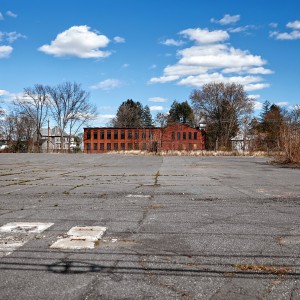Editorial: Battle against opioid abuse must continue
| Published: 01-06-2017 8:34 PM |
Despite advances made in Massachusetts during 2016 in battling opioid addiction, much work remains to be done in combating this nationwide blight.
Last March, Gov. Charlie Baker signed what he called the most comprehensive law in the United States to counter this “deadly, merciless epidemic.” The law’s provisions include limiting first-time prescriptions of opiate painkillers to seven days, requiring schools to establish substance abuse prevention policies involving verbal screening of students, and mandating substance abuse evaluations of people who arrive at hospital emergency rooms with apparent opioid overdoses.
Clinicians since Oct. 15 have been required to consult the new online Massachusetts Prescription Awareness Tool to check the history of patients — and whether they are receiving prescriptions from multiple sources — before prescribing Schedule II or III drugs, including painkillers such as Vicodin and OxyContin. According to the state Department of Public Health, more than 50,000 registered prescribers are part of the system, and use of the online tool more than doubled from just before it was made mandatory in mid-October to the end of the year.
Nevertheless, opioid deaths across the state did not decline during 2016. The health department reported 1,005 confirmed opioid-related overdose deaths through Sept. 30 (including two dozen in Hampshire County), with estimates of the actual number as high as 1,475. If those trends continued, the number of deaths in Massachusetts likely exceeded the estimated 1,747 in 2015.
A major new contributor to the death toll is fentanyl, a powerful synthetic opioid. The health department reported that heroin and prescription drug deaths have been decreasing at roughly the same rate as those attributed to fentanyl have increased. Fentanyl, which was synthesized in the 1960s, is considered 50 times more potent than heroin, so even low doses can be fatal.
While fentanyl is available by prescription to manage pain, according to the U.S. Drug Enforcement Administration, most fentanyl-related deaths result from illegal strong doses. Authorities hope that a new state law that took effect in 2016 — creating the crime of trafficking in fentanyl, with a penalty of up to 20 years in prison — will help take some of that drug off the streets.
The Northampton Police Department announced this week that it responded to 51 drug overdoses during 2016, including 44 involving heroin. Seven of the victims in those cases died. By contrast, in 2015 Northampton Police responded to just 15 heroin overdoses.
Meanwhile, problems continue with providing effective treatment for addicts in Massachusetts, according to a special commission created under the opioid abuse law signed in March. The commission reported at the end of the year that more than half the adults who enter state-licensed treatment programs do not complete the program, and more than 12 percent are readmitted within a month of being discharged.
Article continues after...
Yesterday's Most Read Articles
 Holyoke man finds bear paw in his yard
Holyoke man finds bear paw in his yard
 Petition to block auto dealership on King Street falters in Northampton
Petition to block auto dealership on King Street falters in Northampton
 First look at how little Amherst’s police alternative being used called troubling
First look at how little Amherst’s police alternative being used called troubling
 Developer lands $400K loan for affordable housing project in Easthampton mill district
Developer lands $400K loan for affordable housing project in Easthampton mill district
 Developer pitches new commercial building on Route 9 in Hadley
Developer pitches new commercial building on Route 9 in Hadley
 Boyfriend accused in slaying of Hampden sheriff’s assistant, former legislator’s top aide
Boyfriend accused in slaying of Hampden sheriff’s assistant, former legislator’s top aide
Among the recommendations of the commission are increasing the number and improving training and supervision of “recovery coaches” who help guide patients; expanding on-site mental health care at residential treatment centers; and establishing in hospital emergency rooms specially trained overdose-response teams.
Locally, Cooley Dickinson Health Care last year created a task force to develop comprehensive recommendations aimed at reducing opioid use, dependence and overdoses. The hospital is among the health, education, social service, law enforcement and first responder agencies that are part of the Hampshire HOPE coalition addressing opioid abuse, addiction and overdoses in the county.
Cherry Sullivan, coordinator of the coalition, said Thursday, “I do believe the data is showing the epidemic is getting worse again in Hampshire County, particularly because of fentanyl.”
And Franklin County continues to be a model with its Opioid Task Force, whose work led to the opening of the state’s first Family Drug Court in June. It is an option for addicted parents with child custody cases in the Franklin County Family and Probate Court. Research shows that addicted parents are more receptive to treatment when faced with loss of custody of their children. Participants in the Family Drug Court are required to participate in self-help groups, submit to random drug screenings and work with a recovery coach.
Progress was made statewide and in Hampshire and Franklin counties during 2016 to raise awareness about the opioid epidemic’s terrible toll, and to help its victims. There can be no letup in those efforts during 2017.

 Columnist Andrea Ayvazian: Standing as witness to Armenian martyrs
Columnist Andrea Ayvazian: Standing as witness to Armenian martyrs Taylor Guss: Northampton's zoning should align with its climate goals
Taylor Guss: Northampton's zoning should align with its climate goals Guest columnist Bill Dwight: How to make sense of Northampton’s school budget dilemma
Guest columnist Bill Dwight: How to make sense of Northampton’s school budget dilemma Columnist Russ Vernon-Jones: Climate solutions tough, but can be done
Columnist Russ Vernon-Jones: Climate solutions tough, but can be done
